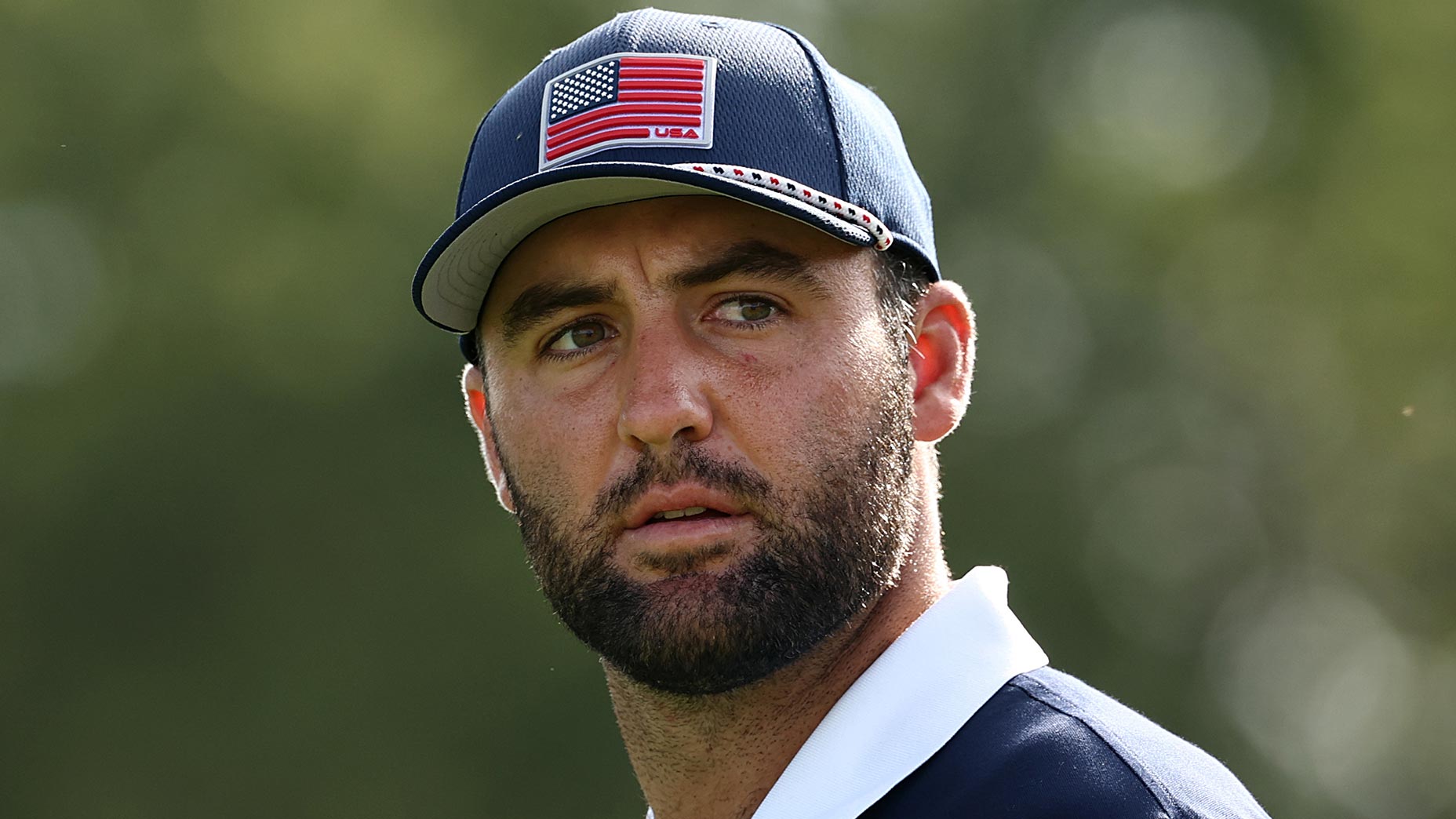FARMINGDALE, N.Y. — Scottie Scheffler stepped to the ball and the world stood still.
It was early Saturday afternoon at Bethpage Black, and after a Ryder Cup full of frustration, Scheffler’s moment had finally arrived.
The crowds had gone from loud to delirious as the second morning session neared its completion, their chants echoing around the 18th-hole amphitheater. Cameron Young and Bryson DeChambeau had raced out to points in the first match of the day, while the Europeans had grabbed convincing victories in each of the second and third matches. Now, the balance of the session hung on a pivotal anchor match: Scheffler and Russell Henley, 1-down on the last against the vulnerable pairing of Bob MacIntyre and Viktor Hovland.
As Scheffler stood over his ball on the 18th fairway, the day and perhaps the Cup rested on his fingertips. If the World No. 1 could hit it tight, he could even the match and tilt the pressure back to the Europeans for an all-or-nothing afternoon four-ball session.
Scheffler swung, and almost immediately the ball shot surprisingly out to the right, arcing high into the air and settling, finally, in the greenside bunker. Scheffler looked puzzled, and for good reason: It was the kind of short-yardage miss he might go a year or more without making in a tournament, let alone a moment of significance like this one. Hovland followed, striping his approach shot into the center of the green. The Americans were done, in the match, in the session, and perhaps in the Cup. The crowd in the enormous grandstand around 18 let out a collective grumble.
There are hundreds of ways to dissect the European clobbering of the first two days at this Ryder Cup. And, should the result hold come Sunday afternoon’s singles matches, you can rest assured that the golf public will find its way to all of them. Course setup. Pairings selections. Order of formats. Order of players within formats. Captains. Rosters. Crowd energy, location, date, time, place — you name it.
But the best explanation for the inexplicable American performance at Bethpage is also the simplest: The Ryder Cup is about your star players, and through three sessions, Scottie Scheffler is winless.
It’s not that Scheffler has played particularly badly. According to datagolf‘s Strokes Gained data, he has been the second-best player on the American side, behind Cameron Young. It’s just that Scheffler hasn’t been anywhere near the same energy-swallowing megastar that has helped him become the best player of the post-Tiger Woods era. At one point in Friday’s opening proceedings, Scheffler had gone 18 consecutive holes without a birdie — a stretch which would have marked just the second time that has happened to Scheffler in any competitive setting in the last two months. Add in Bethpage’s calm winds, soft greens and unusually tame rough, and Scheffler’s showing is even more of a head-scratcher.
One explanation involves his closest historical counterpart: Tiger Woods. Scheffler’s stretch of poor results in team play (and more specifically, the alternate shot format) brings to mind Woods’ own struggles in the Ryder Cup. The Cup is perhaps the only blemish on Woods’ prolific list of on-course accolades: A career 13-21-3 record that undersells his dominance as a tournament player.
Perhaps Scheffler, like Woods, has found the Ryder Cup chaos disruptive to the zen state needed to overwhelm a golf course. Or perhaps his European competitors are to blame: As the afternoon four-ball matches went off on Saturday, McIlroy, Rahm and Fleetwood were a combined 8-0-1 and showcasing the exact same sun-blotting skillset that Scheffler so often displays.
Irrespective of the eventual result (or the ultimate cause), it will be the work of the next Ryder Cup captain to understand the how and why behind Scheffler’s 0-3-0 start. In the Rahm-McIlroy-Fleetwood era, it is difficult to see the U.S. competing in a Ryder Cup, let alone winning one, without Scheffler leading the charge. And as a big Euro lead sets the stage for a potential Sunday coronation, it is difficult to find an easier explanation of what went wrong than the win-loss column next to the World No. 1.







